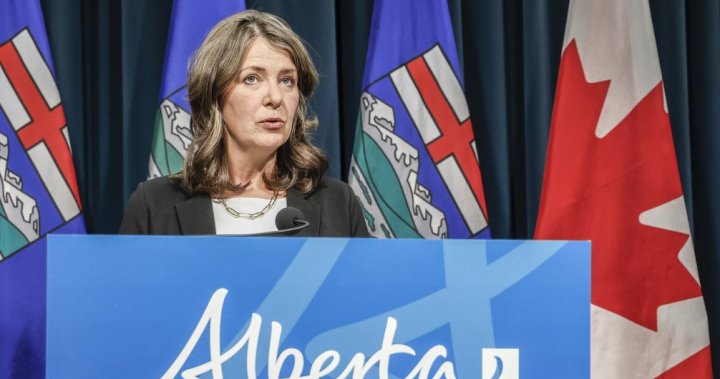The evening light was fading as I watched a diverse crowd filter into the community center in Medicine Hat – young professionals clutching reusable coffee cups, farmers with sun-weathered faces, university students, and retirees. I’d driven five hours from Calgary to witness Alberta’s first public consultation on nuclear energy, a pivotal moment in a province that has long defined itself through fossil fuels.
“I worked in oil and gas for 32 years,” Terry McIntosh told me, adjusting his baseball cap as we spoke outside the venue. “But times change. My grandkids deserve a future too, and if nuclear helps us get there without destroying their world, I’m here to learn.”
Alberta has officially begun its public consultations on small modular reactors (SMRs) and nuclear power generation, marking a significant shift for a province historically dominated by oil and natural gas production. The series of town halls kicked off this week with hundreds of participants engaging in sometimes heated, sometimes measured conversations about energy transitions, climate targets, and community impacts.
Premier Danielle Smith’s government announced these consultations last month, describing them as essential to gathering Albertans’ perspectives before making decisions about nuclear development. While emphasizing that no commitments have been made, Energy Minister Brian Jean has publicly stated that SMRs could play a crucial role in Alberta’s future energy mix.
“Nuclear power isn’t just about keeping the lights on,” Jean told attendees in Medicine Hat. “It’s about maintaining Alberta’s position as an energy powerhouse while meeting our emissions reduction targets.”
For many Albertans, nuclear power represents an unfamiliar frontier. The province has never hosted a nuclear reactor, unlike Ontario and New Brunswick, which have long-established nuclear sectors. This unfamiliarity was evident in the questions that dominated the first consultation sessions.
“What happens to the waste?” asked Maryanne Tailfeathers, a member of the Blood Tribe. “Our lands have already suffered from resource extraction. We need guarantees this won’t become another burden our children inherit.”
Representatives from the Canadian Nuclear Safety Commission were on hand to address technical concerns, explaining that modern SMRs produce significantly less waste than conventional reactors and that Canada has strict regulatory frameworks for handling nuclear materials.
The Alberta government’s interest in nuclear energy comes as neighboring Saskatchewan has already made strides toward SMR development. Last year, SaskPower selected the GE-Hitachi BWRX-300 small modular reactor design for potential deployment, with the first unit potentially operational by 2034.
Economic considerations featured prominently in discussions. A 2021 study by the Conference Board of Canada suggested that developing a small modular reactor industry could contribute $5.3 billion to Canada’s GDP between 2021 and 2040, creating thousands of jobs.
“We’ve got communities that have relied on coal for generations,” said Michelle Brewer, mayor of a small town near Drumheller. “With coal being phased out, we need something that creates skilled jobs. Our people can’t all become wind turbine technicians overnight.”
I noticed that the consultations carefully balanced technical presentations with ample time for public input. Facilitators used digital polling tools to gauge opinions on key questions – from general support for nuclear power to specific concerns about costs, safety, and waste management.
The results revealed a community neither wholly opposed nor enthusiastically supportive, but rather cautiously curious. About 58% of attendees at the Medicine Hat session expressed tentative support for exploring nuclear options, while 27% opposed and 15% remained undecided.
Dr. Esam Hussein, Dean of Engineering at the University of Regina and nuclear engineering expert, told me that public education is crucial to these consultations.
“Most people form opinions about nuclear power based on historical events like Chernobyl or Fukushima,” he explained. “But SMR technology is fundamentally different. These are inherently safer designs with passive safety features that didn’t exist in previous generations.”
Indigenous perspectives remain central to the consultation process. The government has promised separate, nation-to-nation discussions with First Nations communities, though some Indigenous leaders have expressed skepticism about whether their input will meaningfully influence outcomes.
“We’ve heard promises of consultation before,” said Elder Doreen Cardinal, who attended the Medicine Hat session. “The true test is whether our concerns actually shape policy or if decisions have already been made behind closed doors.”
Environmental groups have also raised questions about the timeline of nuclear development. Greenpeace Canada has argued that SMRs won’t be deployed quickly enough to address immediate climate targets, suggesting resources should instead focus on renewable energy expansion.
The consultations continue through the fall, with sessions scheduled in Edmonton, Grande Prairie, Fort McMurray, and other communities. The government plans to release a summary report by early 2025, which will inform potential regulatory frameworks for nuclear development in the province.
As I left Medicine Hat, driving through landscapes dotted with pumpjacks and wind turbines, the symbolic weight of these consultations was evident. For a province that has extracted fossil fuels since the early 20th century, considering nuclear energy represents not just a technological shift but an identity transition.
“Whatever we decide,” Terry McIntosh had told me before we parted, “at least we’re talking about it together. That’s how Alberta should make big decisions – face to face, not in some backroom in Edmonton.”
The next public consultation takes place in Calgary next Tuesday, with registration available through the Alberta Energy website.






